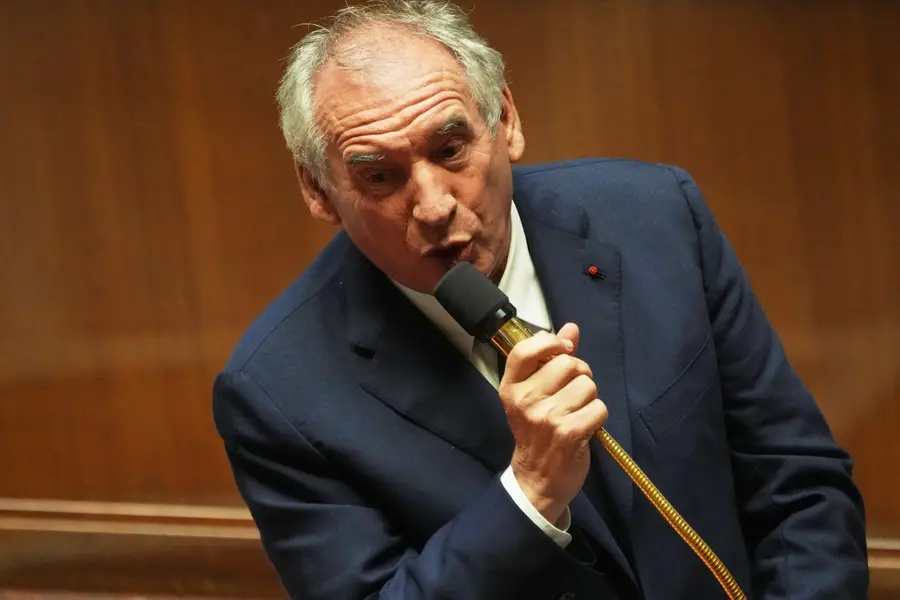In September 2025, France faces one of its most severe political crises in decades following the collapse of Prime Minister François Bayrou’s government in a no-confidence vote. This event has deepened the nation’s political paralysis, raised concerns about its economic stability, and tested its international standing, including its strategic partnership with India.
This article examines the reasons behind the government’s collapse, the current political state of France, its key allies in the evolving global landscape, and its critical business ties with India.
Why Did the French Government Collapse?
On September 8, 2025, Prime Minister François Bayrou was ousted in a no-confidence vote in the National Assembly, with 364 lawmakers voting against him and only 194 in favor, surpassing the 280-vote threshold required to topple the government. Bayrou, a centrist ally of President Emmanuel Macron, had tied his premiership to a confidence vote on a €44 billion austerity budget designed to address France’s escalating public debt of €3.346 trillion (114% of GDP) and a 5.8% budget deficit in 2024.
The budget’s controversial measures, including the elimination of two public holidays and a freeze on government spending, sparked fierce opposition from both the far-right National Rally (RN) and the left-wing New Popular Front (NFP).The crisis stems from Macron’s risky decision in June 2024 to dissolve the National Assembly and call snap elections after the RN’s strong performance in the European Parliament elections.

The result was a hung parliament, with the NFP securing 193 seats, Macron’s Renaissance bloc 166, and the RN 142, none sufficient for a majority. Bayrou, appointed in December 2024 after the collapse of Michel Barnier’s 67-day government over similar budgetary disputes, inherited this deadlock. His insistence on pushing austerity without broad consultation alienated both the left, which demanded wealth taxes, and the right, which opposed welfare cuts, leading the RN and NFP to unite in voting him out.
The Political State of France
France’s political landscape is now defined by fragmentation and instability. The National Assembly’s three-way split—between the NFP, Macron’s centrists, and the RN—has made governance nearly impossible. Macron’s approval rating, languishing at 15-22%, reflects widespread public frustration, with calls for his resignation or early presidential elections growing louder, though he remains committed to serving until 2027.
The RN, led by Marine Le Pen and Jordan Bardella, is gaining momentum, polling at 32-33% for potential snap elections, compared to 25-26% for the NFP and 15% for Macron’s coalition. Le Pen’s 2027 presidential prospects are clouded by a pending trial over party finances, but her party’s influence is undeniable.
The NFP, a coalition of Socialists, Greens, Communists, and France Unbowed (LFI), is hampered by internal divisions, with moderates like Olivier Faure clashing with radicals like Jean-Luc Mélenchon.
Public discontent is fueling protests, with groups like “Bloquons Tout” planning nationwide demonstrations in September 2025, reminiscent of the 2018 Gilets Jaunes movement. The crisis has stalled key reforms, including Macron’s assisted dying legislation, and heightened economic fears, with France’s borrowing costs now exceeding those of Greece and Portugal.
France’s Allies in the Global Landscape
In a shifting global order, France maintains a network of alliances critical to its influence. As a leading NATO and EU member, it aligns closely with the United States, the United Kingdom, and Germany.
Macron’s commitment to Ukraine, including co-leading a coalition with UK Prime Minister Keir Starmer to supply advanced weaponry, underscores France’s role in European security. However, domestic budget constraints may delay planned military spending increases, potentially straining its NATO contributions.France is also strengthening ties in the Indo-Pacific, particularly with India, Australia, and Japan, to counterbalance China’s growing influence. Its partnership with India, built on shared principles of strategic autonomy and non-alignment, is a cornerstone of its global strategy.
France’s decision not to sanction India after its 1998 nuclear tests cemented this trust, positioning Paris as a key European ally for New Delhi.
Business with India
France and India share a robust economic relationship, with bilateral trade reaching €15.3 billion in 2024. Defense and aerospace are central to this partnership, with French companies like Dassault Aviation (Rafale jets), Naval Group (submarines), and Airbus playing major roles in India’s modernization efforts.
Energy cooperation is another key pillar, with EDF supporting India’s nuclear and solar projects. Joint ventures in space, technology, and digital infrastructure further strengthen ties.India’s leadership in the Global South aligns with France’s vision of a multipolar world, ensuring the partnership’s resilience despite France’s domestic challenges.
Both nations collaborate on global issues like climate change and counterterrorism, with France supporting India’s G20 initiatives. New defense deals and renewable energy projects are expected to deepen this relationship in the coming years.
Looking Ahead
Macron faces the daunting task of appointing a new prime minister, with potential candidates including Armed Forces Minister Sébastien Lecornu, Justice Minister Gérald Darmanin, or former Socialist PM Bernard Cazeneuve. The new appointee will confront the same parliamentary gridlock, with no majority to pass a budget or reforms.
The constitution allows a budget decree if no agreement is reached by December 20, but this risks escalating public unrest. New elections are prohibited until July 2025, and Macron’s refusal to resign ensures his presidency continues, though his influence is severely diminished.Financial markets are on edge, with rising borrowing costs and fears of a credit rating downgrade.
The European Central Bank may intervene if the crisis worsens, though IMF assistance remains unlikely. France’s ability to maintain its global influence, particularly with strategic partners like India, hinges on stabilizing its domestic politics—a formidable challenge in this polarized environment.
Conclusion
The collapse of France’s government in September 2025 highlights a profound crisis of governance, driven by a fractured parliament, unpopular austerity measures, and widespread public discontent. While France’s global alliances, especially with India, remain strong, its political instability threatens its economic stability and international clout. With protests looming and no immediate resolution in sight, France faces a critical test of its resilience as it navigates this turbulent period while striving to uphold its role in the global order.

Comments